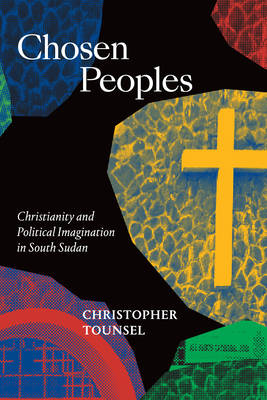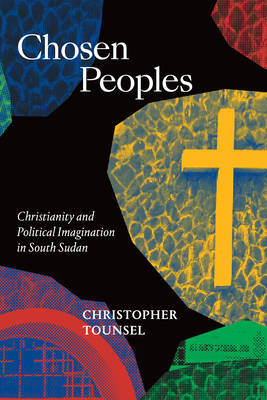
- Afhalen na 1 uur in een winkel met voorraad
- Gratis thuislevering in België vanaf € 30
- Ruim aanbod met 7 miljoen producten
- Afhalen na 1 uur in een winkel met voorraad
- Gratis thuislevering in België vanaf € 30
- Ruim aanbod met 7 miljoen producten
Zoeken
€ 41,45
+ 82 punten
Uitvoering
Omschrijving
On July 9, 2011, South Sudan celebrated its independence as the world's newest nation, an occasion that the country's Christian leaders claimed had been foretold in the Book of Isaiah. The Bible provided a foundation through which the South Sudanese could distinguish themselves from the Arab and Muslim Sudanese to the north and understand themselves as a spiritual community now freed from their oppressors. Less than three years later, however, new conflicts emerged along ethnic lines within South Sudan, belying the liberation theology that had supposedly reached its climactic conclusion with independence. In Chosen Peoples, Christopher Tounsel investigates the centrality of Christian worldviews to the ideological construction of South Sudan and the inability of shared religion to prevent conflict. Exploring the creation of a colonial-era mission school to halt Islam's spread up the Nile, the centrality of biblical language in South Sudanese propaganda during the Second Civil War (1983--2005), and postindependence transformations of religious thought in the face of ethnic warfare, Tounsel highlights the potential and limitations of deploying race and Christian theology to unify South Sudan.
Specificaties
Betrokkenen
- Auteur(s):
- Uitgeverij:
Inhoud
- Aantal bladzijden:
- 224
- Taal:
- Engels
- Reeks:
Eigenschappen
- Productcode (EAN):
- 9781478011767
- Verschijningsdatum:
- 7/05/2021
- Uitvoering:
- Paperback
- Formaat:
- Trade paperback (VS)
- Afmetingen:
- 152 mm x 229 mm
- Gewicht:
- 299 g

Alleen bij Standaard Boekhandel
+ 82 punten op je klantenkaart van Standaard Boekhandel
Beoordelingen
We publiceren alleen reviews die voldoen aan de voorwaarden voor reviews. Bekijk onze voorwaarden voor reviews.







